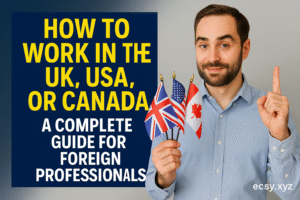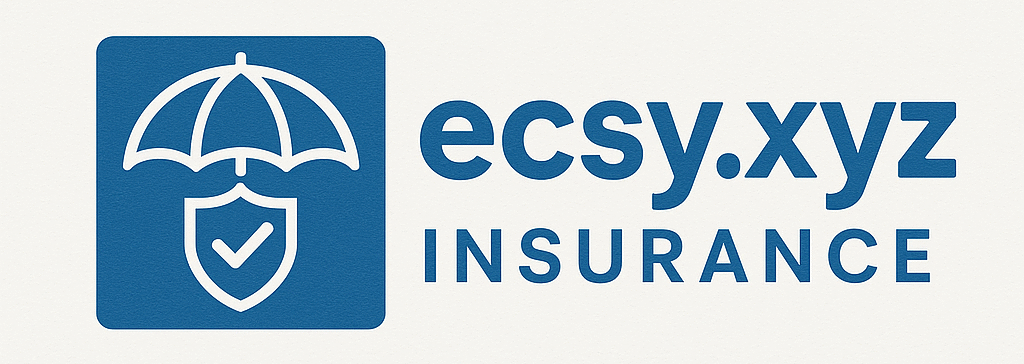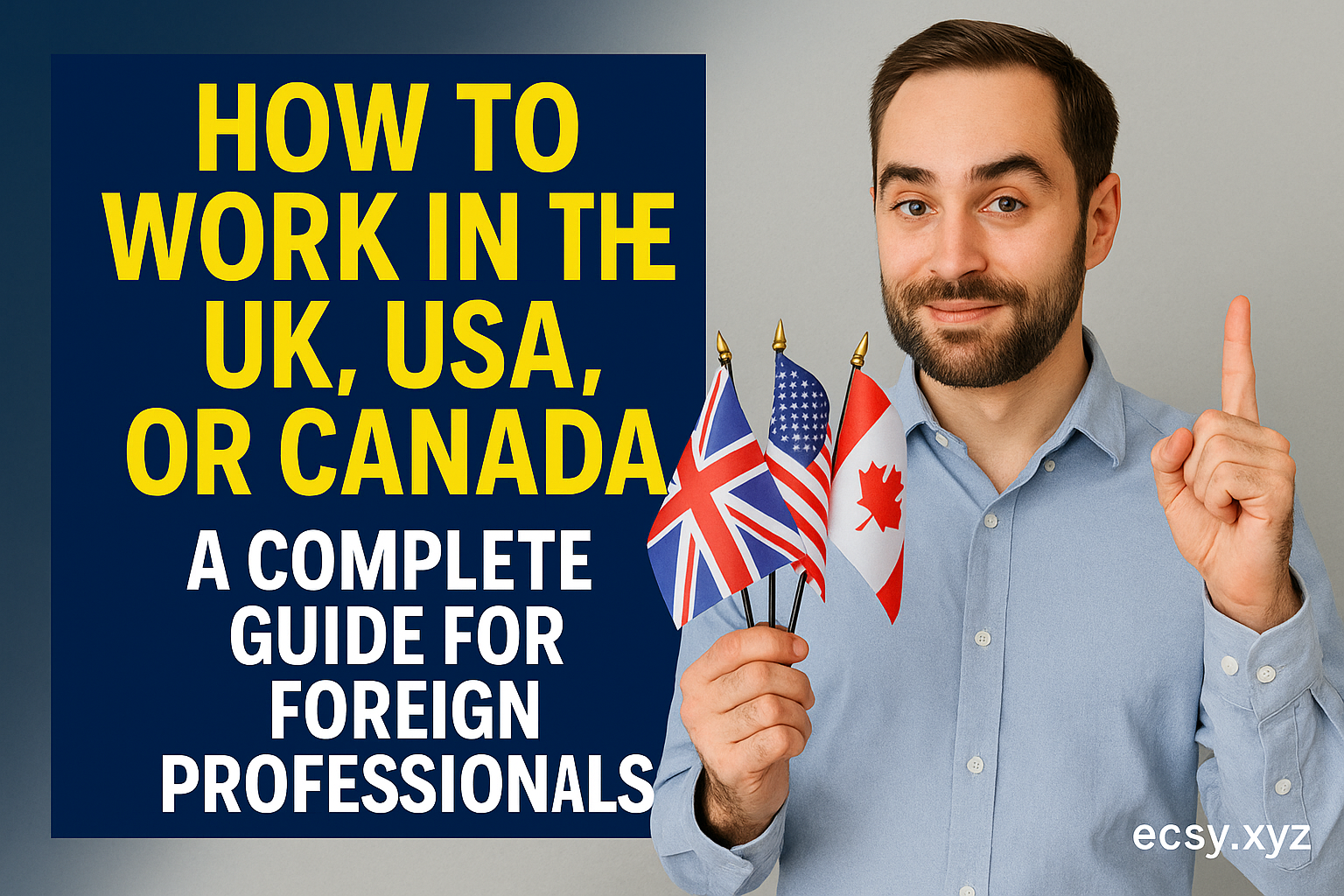Working in developed countries like the UK, USA, or Canada opens the door to immense career opportunities, better pay, and a higher quality of life. These three nations attract skilled professionals from all over the world, but navigating their immigration, visa, and employment systems requires careful planning, precise documentation, and timely action.

In this comprehensive guide, we walk you through everything you need to know about how to legally and successfully work in the UK, USA, or Canada—from visa types and application processes to employment sectors, job portals, and key tips for job seekers.
Understanding Work Opportunities in the UK, USA, and Canada
United Kingdom (UK)
The UK is a global financial and technology hub, offering strong career prospects in sectors such as healthcare, engineering, finance, education, and IT. Foreign nationals can apply for a variety of work visas, with the most popular being the Skilled Worker visa.
United States of America (USA)
The USA is known as the land of opportunities, with high demand for workers in STEM, medicine, IT, and academia. Work in the US is typically based on employer sponsorship, and the H-1B visa is the most recognized route for skilled professionals.
Canada
Canada offers a more immigration-friendly environment compared to other countries. The Express Entry system and various Provincial Nominee Programs (PNPs) make it easier for skilled individuals to settle and work permanently.
Types of Work Visas and Permits
UK Work Visas
-
Skilled Worker Visa: For individuals sponsored by a UK employer in an eligible job role. Requires a job offer and Certificate of Sponsorship (CoS).
-
Health and Care Worker Visa: Specially for doctors, nurses, and healthcare professionals.
-
Global Talent Visa: For individuals recognized as leaders or emerging leaders in tech, arts, or academia.
USA Work Visas
-
H-1B Visa: Employer-sponsored visa for professionals in specialized occupations. Lottery-based and highly competitive.
-
L-1 Visa: For intra-company transferees.
-
O-1 Visa: For individuals with extraordinary ability or achievement in sciences, arts, education, or athletics.
Canada Work Visas
-
Express Entry (Federal Skilled Worker Program): Points-based system focusing on education, work experience, age, and language proficiency.
-
Temporary Foreign Worker Program (TFWP): Employer-driven route for temporary positions.
-
Post-Graduation Work Permit (PGWP): For international students graduating from Canadian institutions.
Eligibility Criteria to Work Abroad
To be eligible to work in the UK, USA, or Canada, most applicants must meet the following general criteria:
-
Valid Job Offer from Employer (except in Express Entry cases in Canada)
-
Proof of Qualifications and Work Experience
-
Proficiency in English Language (IELTS, TOEFL scores)
-
Clear Criminal Record and Medical Examination
-
Financial Proof or Settlement Funds (especially in Canada)
Best Job Sectors in the UK, USA, and Canada
United Kingdom
-
Healthcare and Nursing
-
Engineering and Manufacturing
-
Education
-
Finance and Accounting
-
Information Technology
United States
-
Software Development
-
Healthcare and Biotechnology
-
Data Science and AI
-
Engineering
-
Financial Services
Canada
-
Nursing and Healthcare
-
Construction and Skilled Trades
-
Information Technology
-
Agriculture and Food Services
-
Education and Teaching
How to Find a Job Before You Move
1. Use Reputed Job Portals
-
UK: Indeed UK, Reed, CV-Library
-
USA: LinkedIn, Glassdoor, USAJobs.gov
-
Canada: Job Bank Canada, Monster.ca, Workopolis
2. Apply Directly to Companies
Many multinational companies in the UK, USA, and Canada sponsor foreign workers. Visit company career pages and apply directly.
3. Use Recruitment Agencies
Recruitment firms such as Hays, Robert Half, Michael Page, and Randstad operate globally and can help with placement and sponsorship.
Important Documents Required
-
Updated CV/Resume (as per country format)
-
Cover Letter
-
Degree Certificates and Transcripts
-
Reference Letters
-
English Language Test Results (IELTS/TOEFL)
-
Passport and Photographs
-
Police Clearance Certificate
-
Medical Exam Report (from authorized clinics)
Tips to Increase Your Chances of Working Abroad
-
Tailor Your Resume to the specific job description and the country’s resume format.
-
Gain Experience in High-Demand Fields such as tech, engineering, or healthcare.
-
Build a Strong LinkedIn Profile and connect with recruiters in your target country.
-
Improve Your English Skills—language proficiency is often a key requirement.
-
Take Certification Courses relevant to your industry, especially those recognized internationally.
-
Prepare for Interviews by practicing common behavioral and technical questions.
Pathway to Permanent Residency
UK: After 5 years on a Skilled Worker visa, you can apply for Indefinite Leave to Remain (ILR), followed by British citizenship.
USA: After several years on a work visa (like H-1B), you may apply for a Green Card via employer sponsorship or other eligibility routes.
Canada: Express Entry or PNP applicants often receive Permanent Residency (PR) directly, with a path to Canadian Citizenship after 3 years of residence.
Cost of Living and Salary Expectations
United Kingdom
-
Average Salary: £30,000 – £60,000
-
Cost of Living: Moderate to High depending on the city (London is most expensive)
United States
-
Average Salary: $50,000 – $120,000
-
Cost of Living: Varies significantly by region (NYC, SF expensive; Texas, Florida affordable)
Canada
-
Average Salary: CAD $40,000 – $90,000
-
Cost of Living: Moderate, with Vancouver and Toronto being on the higher end
Final Thoughts
Working in the UK, USA, or Canada requires diligence, preparation, and persistence. Whether you are pursuing a temporary job opportunity or seeking permanent relocation, understanding the specific immigration rules and aligning your skills to market demand will increase your chances of success.
These countries value skilled professionals and offer long-term benefits like citizenship, family settlement, and global exposure. Start your journey now by preparing the required documents, applying for jobs strategically, and staying updated with immigration changes.
Workplace Culture and Adaptation Tips
Understanding Cultural Norms
UK: Formal yet friendly. Punctuality and modesty are appreciated.
USA: Results-driven with emphasis on initiative and confidence. Work hours can be long, and performance is key.
Canada: Emphasizes inclusivity, politeness, and strong work-life balance. Communication is direct but respectful.
Building Local Experience
Volunteering, internships, or temporary contracts can lead to full-time employment offers and help build local references.
Soft Skills Development
Improve key skills such as:
-
Communication and presentation
-
Problem-solving and adaptability
-
Time management
-
Team collaboration in multicultural environments
Frequently Asked Questions (FAQs)
1. Can I apply for a job before getting a visa?
Yes. In most cases, especially for the UK and USA, you need a job offer first to apply for a work visa. Canada’s Express Entry, however, does not require a job offer, but having one increases your CRS score.
2. What are the most in-demand jobs?
-
UK: Nurses, software engineers, quantity surveyors
-
USA: Data scientists, cybersecurity experts, healthcare workers
-
Canada: Truck drivers, IT professionals, early childhood educators
3. How long does the visa process take?
-
UK Skilled Worker Visa: ~3 weeks (after biometrics)
-
H-1B USA: 6–9 months, including lottery
-
Canada Express Entry: 6–12 months from ITA to PR
4. Can I bring my family?
Yes. Most work visa routes in these countries allow spouses and dependents to accompany you. Some even permit spouses to work full-time.
5. Is there an age limit to apply?
There is no strict age limit, but younger applicants (18–35) may have a higher chance under points-based systems like Canada’s Express Entry. Experience and qualifications, however, can offset age points.

